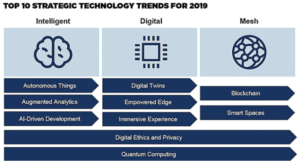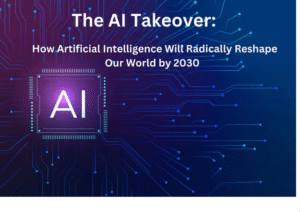
Artificial Intelligence has evolved from science fiction concept to tangible reality, fundamentally altering how we navigate our daily routines. While AI’s current applications—from Netflix’s recommendation algorithms to Tesla’s autopilot features—already demonstrate its transformative potential, the horizon promises even more revolutionary changes. As we approach 2030, Artificial Intelligence stands poised to redefine every aspect of human existence.
Current State of AI Integration
Today’s AI landscape reveals remarkable progress across multiple sectors. Machine learning algorithms power everything from fraud detection in banking to predictive maintenance in manufacturing.. This foundation sets the stage for the exponential growth expected throughout this decade.
AI Trends to Watch
Generative AI represents perhaps the most exciting frontier in AI trends. Unlike traditional AI systems that analyze existing data, generative models create entirely new content. Current tools like ChatGPT and MidJourney merely scratch the surface of what’s possible. By 2030, we anticipate generative AI systems capable of producing Hollywood-quality films, composing symphonies indistinguishable from human composers, and generating scientific research papers that advance human knowledge.
The healthcare sector showcases another pivotal AI trend. Current diagnostic systems can identify skin cancer with 95% accuracy, surpassing many dermatologists. Looking ahead, AI will revolutionize personalized medicine by analyzing individual genetic profiles, environmental factors, and lifestyle choices to predict health risks decades in advance. Surgical robots will perform complex procedures with microscopic precision, while AI-powered drug discovery platforms will reduce pharmaceutical development timelines from decades to years.
Conversational AI is evolving beyond simple question-and-answer interactions. Future systems will engage in nuanced discussions, understand emotional context, and maintain long-term memory of individual preferences and histories. These digital companions will provide psychological support, educational guidance, and creative collaboration.
The Role of AI in Future Technology
Future technology infrastructure will be fundamentally AI-native. Autonomous vehicles represent just the beginning of transportation evolution. By 2030, entire cities will operate on AI-managed traffic systems that eliminate congestion through predictive routing and real-time optimization. Public transportation will become seamlessly integrated, with AI coordinating buses, trains, and ride-sharing services to minimize wait times and maximize efficiency.
The workplace transformation will be equally dramatic. AI assistants will handle data analysis, report generation, and routine communications, freeing human workers to focus on strategy, creativity, and interpersonal relationships. Legal professionals will use AI to review contracts and research precedents, while architects will collaborate with AI systems to design buildings that optimize energy efficiency and human comfort.
AI in Everyday Life by 2030
Personal AI assistants will transcend current limitations, becoming sophisticated digital companions that understand context, emotion, and long-term goals. These systems will manage complex scheduling across multiple family members, coordinate household maintenance, and even provide relationship counseling based on communication patterns.
AI systems will adjust lighting based on circadian rhythms, optimize indoor air quality for health and productivity, and manage energy consumption to minimize environmental impact while reducing utility costs. Kitchens will suggest recipes based on available ingredients, dietary restrictions, and nutritional goals, automatically ordering groceries when supplies run low.
These platforms will identify individual learning styles, adapt content difficulty in real-time, and provide supplementary materials tailored to each student’s interests and career aspirations. Language barriers will disappear as real-time translation becomes seamless and contextually accurate.
Challenges and Considerations
The rapid advancement of Artificial Intelligence brings significant challenges requiring careful consideration. Data privacy concerns will intensify as AI systems collect increasingly detailed personal information. Algorithmic bias poses risks of perpetuating or amplifying existing social inequalities. Job displacement fears, while often overstated, require proactive workforce retraining initiatives.
Cybersecurity becomes more complex as AI systems themselves become targets for manipulation and attack. Ensuring AI systems remain secure, transparent, and aligned with human values requires ongoing collaboration between technologists, ethicists, and policymakers.
The Path Forward
Successfully navigating the AI revolution requires balanced approaches that maximize benefits while mitigating risks. Investment in AI literacy, ethical guidelines, and inclusive development practices will determine whether future technology serves all of humanity or exacerbates existing inequalities.
Conclusion
As we advance toward 2030, Artificial Intelligence will fundamentally reshape civilization in ways we’re only beginning to understand. By staying informed about emerging AI trends and actively participating in discussions about future technology, we can help ensure that AI’s transformative power creates a more prosperous, equitable, and sustainable world for everyone. The future isn’t something that happens to us—it’s something we actively create through the choices we make today.





